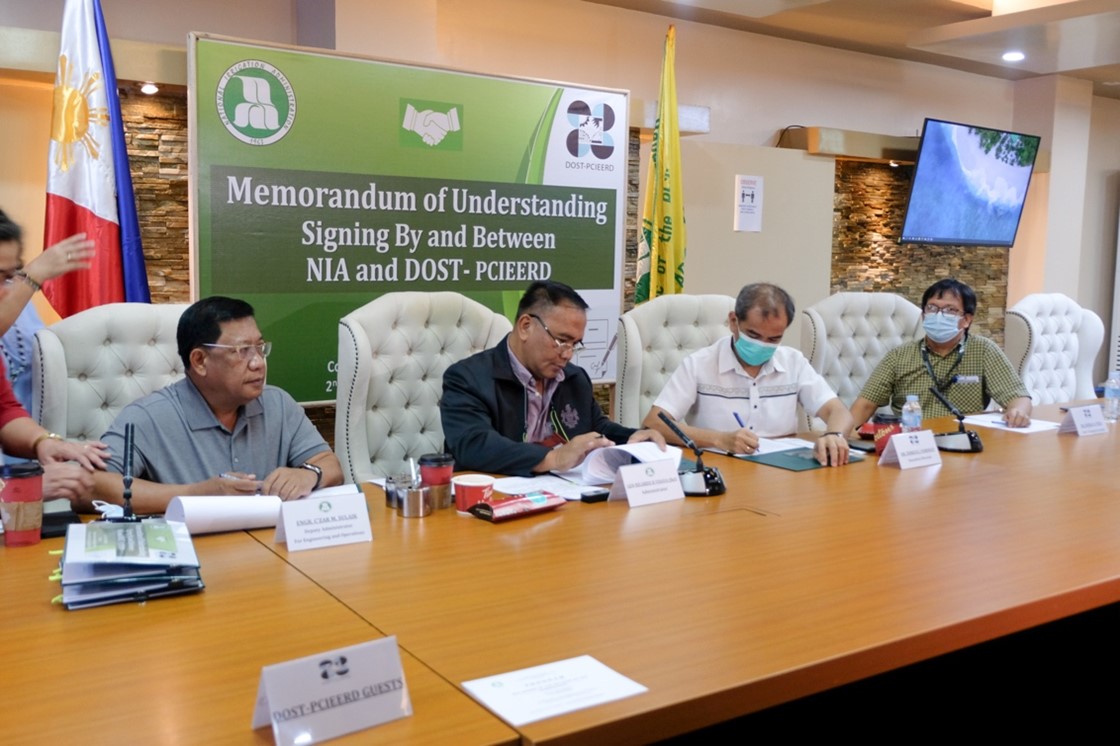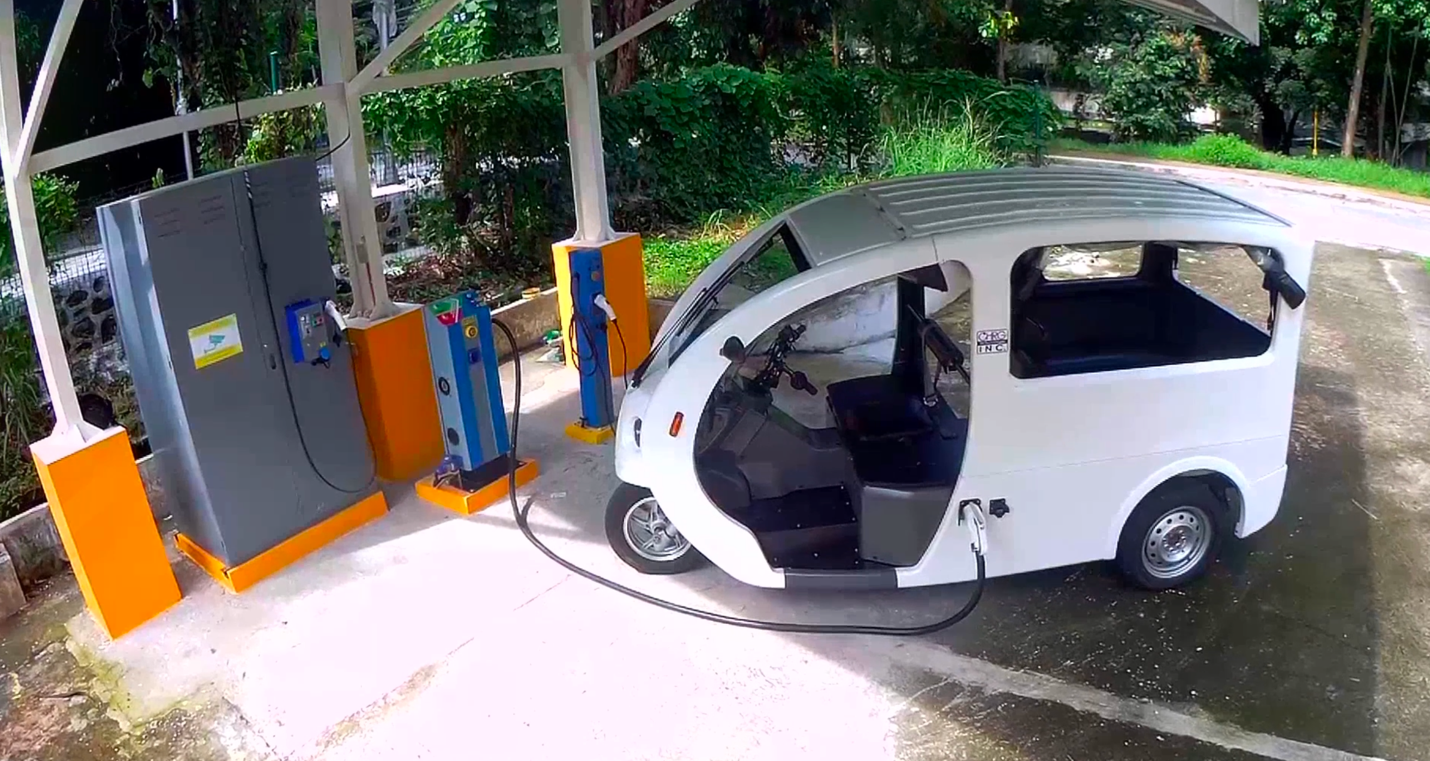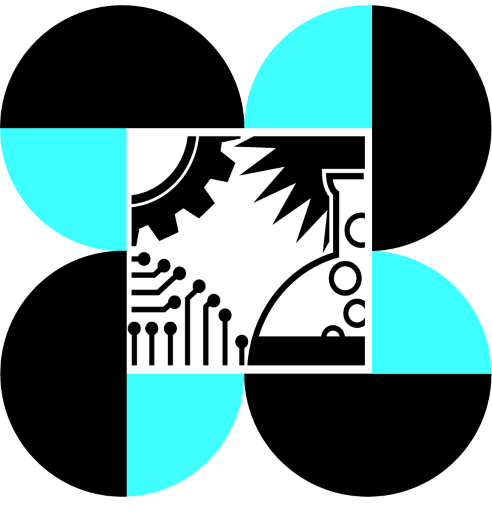(From left) NIA Deputy Administrator Engr. Czar M. Sulaik, NIA Administrator Gen. Ricardo Visaya (ret), DOST-PCIEERD Executive Director Dr. Enrico Paringit, and DOST-PCIEERD Chief of EUSTDD Engr. Nonilo A. Pena.
The Department of Science and Technology-Philippine Council for Industry, Energy, and Emerging Technology Research and Development (DOST-PCIEERD) has forged a 6-year partnership with the National Irrigation Administration (NIA) on Friday to further capacitate the latter in delivering science-based services toward effective water management of irrigation in the country.
The ceremonial signing of the Memorandum of Agreement (MOU) was attended by DOST-PCIEERD Executive Director Dr. Enrico C. Paringit, NIA Administrator General Ricardo Visaya (Ret), and Deputy Administrator Engr. Czar M. Sulaik at the NIA head office in Quezon City.
“With the rapid advancement of science and technology (S&T), coupled with the growing challenges brought about by climate change, there is a need to continually develop new strategies in enhancing the local governments’ disaster resiliency as well as its adaptability to infrastructure development and investment,” Paringit said.
(From left) NIA Deputy Administrator Engr. Czar M. Sulaik, NIA Administrator Gen. Ricardo Visaya (ret), DOST-PCIEERD Executive Director Dr. Enrico Paringit, and DOST-PCIEERD Chief of EUSTDD Engr. Nonilo A. Pena. At the back witnessing the signing of the MOU are representatives from both agencies.
“We, at the Council, are glad to have entered this collaboration with NIA as we continue advocating for a stronger tie with our public and private, as well as academic partners, for the eventual adoption of R&D,” he added.
Both parties have agreed to formally collaborate through the Water Resource Management and Climate Resilient Infrastructure Initiative Program (WRMCRII) to address challenges in the sector by planning, programming, crafting policies regarding harmonized water resource management, disaster resilience, climate change adaptation, and mitigation program based on research and development (R&D) agenda and S&T intervention plan.
The potential S&T collaboration areas are, but not limited to allocation of flood control in all dams; severe sedimentation-desilting; real-time monitoring during floods; dam break scenario-affected communities; inter-agency collaboration-watershed rehabilitation; enhanced forecasting during floods; hydrological and river flow modelling; groundwater modelling and monitoring for irrigation well areas; shallow tube wells for aquifer recharge; and smart farming innovative water management systems.
DOST-PCIEERD and NIA will also create an oversight committee equally representing both parties to monitor project accomplishments and the recommended succeeding steps during the implementation of the program.






